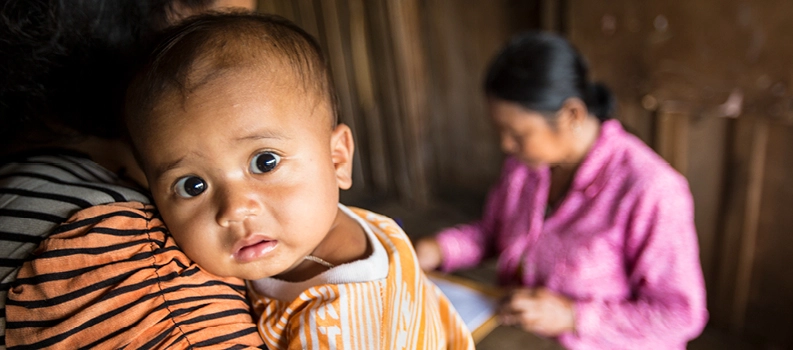Health experts in South and Southeast Asia are calling for sustained action to achieve the goal of eliminating malaria in the next decade.
In a new report, they warn this will only be possible if major challenges are overcome, most notably the problem of tackling the disease in hard-to-reach mobile and migrant populations.
The report, called Malaria Futures for Asia, urges governments and donors to maintain their focus on malaria to address issues such as parasites’ emerging drug resistance, mosquitoes’ resistance to insecticides, a lack of skilled health workers, and the threat of climate change increasing the spread of disease-carrying mosquitoes.
“Despite the incredible commitment from the Asian region to eliminating malaria by 2030, the situation could quickly deteriorate and the disease could slip down the health agenda, particularly as countries in the region develop and are more affected by chronic conditions,” warn the report’s co-chairs, Professor Yongyuth Yuthavong, former Deputy Prime Minister of Thailand and a board member of the Roll Back Malaria Partnership to End Malaria, and Professor K. Srinath Reddy, President of the Public Health Foundation of India.
Declining death toll
The Malaria Futures for Asia research was commissioned by Novartis Social Business and surveyed 36 civil servants, malaria program directors, senior researchers and representatives of non-governmental organizations in five countries: Cambodia, India, Myanmar, Thailand and Vietnam.
Southeast Asia accounts for 5% of malaria cases, according to the World Health Organization (WHO), making it the world’s second most affected region after Africa, where similar research was carried out last year.
In Southeast Asia the death toll from malaria has more than halved since 2010, but an estimated 19,700 people in the region still died of the disease in 2017.
The report concludes that the P. falciparum parasite, responsible for nearly 63% of cases in the region, could be eliminated by 2030 in line with WHO goals. However, less than half of respondents believe it will be possible to eliminate the P. vivax strain, which is more difficult to diagnose, screen, and treat.

Reaching mobile and migrant populations
In seeking to eliminate malaria by 2030, a major hurdle will be reaching mobile and migrant populations in remote areas. These groups are apprehensive of efforts to prevent, diagnose or treat malaria, potentially helping to spread resistance and prevent disease elimination.
For example, one respondent in Cambodia said forest workers were a special concern: “They are illegal, so they don’t want to show up. It’s difficult for us to distribute the impregnated nets (i.e. bed coverings treated with insecticide) and to provide malaria education.”
The report calls for new approaches and tools, such as issuing insecticide-treated hammocks, and stresses that regional strategies and surveillance are critical when dealing with groups who frequently cross borders. In addition, the support of local voluntary organizations is crucial in reaching these populations.
Range of challenges
The Malaria Futures for Asia co-chairs urge donors, regional institutions, national policymakers and philanthropists to address the challenges faced by South and Southeast Asian countries.
One priority is more effective surveillance to monitor the emergence of resistance to artemisinin-based combination therapies (ACTs), the current standard of care, which is a concern in several countries.
Another issue is that malaria programs are increasingly being integrated into general primary healthcare, resulting in a loss of skills in diagnosing and treating the disease. Unless specific training is provided, this raises the prospect of more cases going undetected and adding to the problem of resistance. The report says everyone with a fever should be screened for malaria, and more healthcare workers trained to identify the parasite in blood samples under the microscope.
Finally, the report calls for further study of the potential for climate change to increase the incidence of malaria. This is seen as a risk by 80% of respondents. One Cambodian expert said: “If the rains start early and last a long time, it may affect the breeding of mosquitoes and result in an increase in mosquitoes.”
Harald Nusser, the Head of Novartis Social Business, said: “The report’s findings reinforce the need for healthcare systems to maintain their focus on reducing malaria, while also addressing the rising incidence of chronic diseases. Countries in the region need to continue focusing on both, and ensure primary healthcare services are equipped to do so.”

Read the full report:
MalaFAsia - Malaria Futures for Asia
In #malaria survey, experts from Asia call for sustained action to combat the disease. #MalariaFuture @Novartis_NSB



